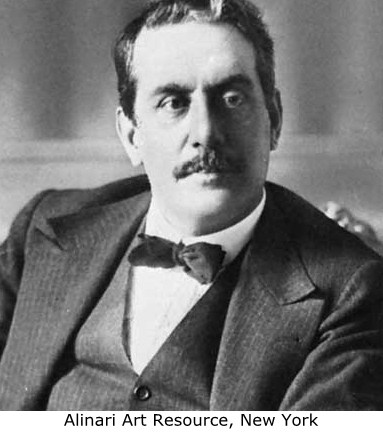.
S
i t e S e a r c h
A_B_C_D_E_F_G_H_I_J_K_L_M_N_O_P_Q_R_S_T_U_V_W_XYZ
List
of Topics__Ask
Suby__Free
Stuff__Questions
Lists
Terms
of Use__________________Privacy
Policy
Interlinked
Dictionary© based on
Merriam-Webster's
Collegiate® Dictionary (m-w.com)
and Star
Dictionary
Use the BACK
button on your browser to return
parcel.noun,.plural.parcels
something
wrapped up or packaged; a parcel is also a package;
a plot of land, usually
a division of a larger area
parcel,
parcels,
parceled.also.parcelled
(like, why anyone but an idiot spell
it two different ways?.1Corinthians
14:33), parceling.transitive
verbs
to divide into parts and
distribute
(parceled out the land to their three children); to make into a parcel;
a package; from Middle
English and Old
French 'portion'
pentoxide.noun,.plural.pentoxides
a compound
having five atoms of oxygen
combined with another element or
radical
parrot.noun,.plural.parrots
one who imitates
the words or actions of another, especially without comprehending
them; any of numerous tropical
and semitropical birds of
the order Psittaciformes, characterized
by a short hooked bill,
brightly colored plumage and in
some species, the ability to mimic
human speech or other sounds
parrot,
parroted,
parroting,
parrots.transitive
verbs
to repeat
or imitate, especially without comprehension
parroter.noun,.plural.parroters
pearl.noun,.plural.pearls
a hard, lustrous.spherical.mass,
typically
white or bluish-grey, formed within the shell of an oyster
or other bivalve mollusk and highly
prized as a gem; an artificial.imitation
of a pearl; pearl color is a very pale bluish-grey or white colour; a pearl
has a smooth, lustrous, variously
colored deposit, made of chiefly calcium carbonate, formed around a grain
of sand or other foreign matter in the shells of mollusks; something that
is highly regarded for one's beauty
or value
pearl,
pearled,
pearling,
pearls.verbs
transitive verb use.to
decorate
with pearls
intransitive
verb use.to
dive or fish for pearls or pearl bearing mollusks; to form beads.resembling
pearls
pearly,
pearlier,
pearliest.adjectives
resembling pearls; covered
or decorated with pearls or mother-of-pearl.noun,.plural.mother-of-pearls
the hard pearly iridescent
substance forming the inner layer of a mollusk shell
phalanx.noun,.plural.phalanxes.or.phalanges
a compact or close knit
body of people, such as a formation of infantry carrying overlapping shields
and long spears, originally developed by Philip II of Macedon and used
by Alexander the Great
Anatomy:.a
bone of a finger or toe, also called phalange
pop,
popped,
popping,
pops.verbs
intransitive verb use.to
make a short, sharp, explosive sound; to burst
open with a short, sharp, explosive sound; the word pop is used to represent
a short sharp sound, for example the sound made by bursting a balloon or
by pulling a cork out of a bottle (while out driving his back tire just
went pop); to move quickly or unexpectedly; appear abruptly (they popped
by to have coffee with us); to open wide suddenly (the child's eyes popped
with astonishment;
to pop up so as to be visible, as
the gopher does when he pops his head out of his habitation burrow
transitive verb use.to
cause to make a sharp bursting sound; to cause to explode with a sharp
bursting sound (popped the balloon); to put or thrust
suddenly or unexpectedly (just let me pop this in the closet before we
go out; he plucked a purple grape from the bunch and popped it in his mouth;
if you pop somewhere, you go there for a short time (pop over to the pub
for a beer)
pop.noun,.plural.pops
a sudden sharp, explosive
sound (I heard some kind of a pop outside); the sound one hears when he
blows air in a paper bag and collapses it fast with both hands while holding
the end of the bag with one hand so air doesn't leak out; pop is also what's
called a soft drink
pop.adverb
with a popping sound; abruptly
or unexpectedly
pop up, pops up.idiom
in baseball, to hit a short
high fly ball, such as one that can be caught by an infielder)
Giacomo Puccini.proper
noun
Giacomo Antonio Domenico
Michele Secondo Maria Puccini
born December 22, 1858,
Lucca, Tuscany, Italy, died November 29, 1924, Brussels, Belgium
Italian composer, one of
the greatest exponents of operatic realism, who virtually brought the history
of Italian opera to an end. His mature operas include.La
Bohème.(1896),
Tosca.(1900),
Madama
Butterfly.(1904)
and.Turandot,
left incomplete.
He was orphaned
at the age of five by the death of his father and the municipality of Lucca
supported the family with a small pension and kept the position of cathedral
organist open for Giacomo until he came of age, after which he played the
organ in small local churches. A performance of Giuseppe Verdi's Aida,
which he saw in Pisa, Italy in 1876, convinced him that his true vocation
was opera.
....comprised
with information from Encyclopedia Britannica.
....pic
from Alinari Art Resource courtesy of Encyclopedia Britannica
people.noun,.plural.peoples
human beings, those of
humanity considered as a group or in indefinite numbers (people were
dancing in the street; I met all sorts of people; the peoples of the world
include all nationalities)
phonograph.noun,.plural.phonographs
a machine that reproduces
sound by means of a stylus in contact
with a grooved rotating disk
phonographic.adjective
phonographically.adverb
Word History:
In considering the makeup of the word phonograph or the related word gramophone,
one has no difficulty understanding why they contain phono- or -phone,
both going back to Greek 'phone' meaning 'sound', 'voice'. Why, however,
do these words contain -graph and gram-, which have to do with writing,
going back to Greek 'graphein', 'to write' and Greek 'gramma' meaning 'something
written', 'letter of the alphabet' respectively? 'Gramophone' is in fact
simply an inversion of the earlier
'phonogram', the more important word to explain. Both 'phonogram' and 'phonograph'
were first used to denote characters
that represented speech sounds, phonograph being found in such a use earlier
(1835-1840) than phonogram (1860). But in the second half of the 19th century
sounds were reproduced in ways other than writing. The earliest device
to be called a phonograph was a machine that picked up sound vibrations
by means of a membrane and recorded
them with a point that traced
them on a cylinder. Thomas
Edison's famous device was also known as the phonograph
(first reference found in 1877, the year of its invention); it too
used the principle of tracing
sound on a cylinder. After this the word phonogram, probably under the
influence of the word telegram, was used to refer to a sound recording
made by a phonograph (first such use found in 1879) and in 1884 the gramophone,
whose name was formed by inverting the term phonogram, was patented by
Emile Berliner.
pristine.adjective
returning to an original
pure condition; clean (pristine mountain snow); remaining in an uncorrupted
state of existence; of relating to the earliest time or condition; original;
free from dirt or decay
pristinely.adverb
patsy.noun,.plural.patsies
an individual who is easily taken advantage of
by cheating, blaming or ridiculing;
from Italian 'pazzo' meaning 'fool';
pilot light.noun,.plural.pilot
lights
a pilot light is a small gas flame in a cooker,
stove, boiler or furnace. It burns
all the time and lights the main large flame when the gas is turned fully
on; a small jet of gas that is kept burning in order to ignite
a gas burner, as in a stove
peaked,
peaking,
peak,
peaks.intransitive
verb
pronounced 'peek ed'
to become sickly, emaciated
or pale
peaked.adjective
having a sickly appearance
parens patriae
word originated in the 1800's in the United Kingdom
where courts gave themselves authority to intervene as 'parens patriae'
which is Latin, meaning 'parent of the land'
pyre.noun,.plural.pyres
a heap
of combustibles for burning
a corpse as a funeral.rite;
a pile of combustibles
(a pyre for a fire)
pixel.noun,.plural.pixels
a pixel is the smallest area on a computer screen
which can be given a separate color by the computer; etymology
is pix + element, came into use 1965-1970; the smallest element of an image
that can be individually processed in a video display system, such as your
TV; the smallest discrete.component
of an image or picture on a TV screen (usually a colored dot); the greater
the number of pixels per inch the greater is the resolution
pixilate.verb
to divide an image into pixels, typically for
display or storage in a digital format; to display an individual's image
as a small number of large pixels
pixellated.adjective
consisting of pixels, especially large pixels
that produce an unclear image
pixelation.noun,.plural.pixelations
.
|